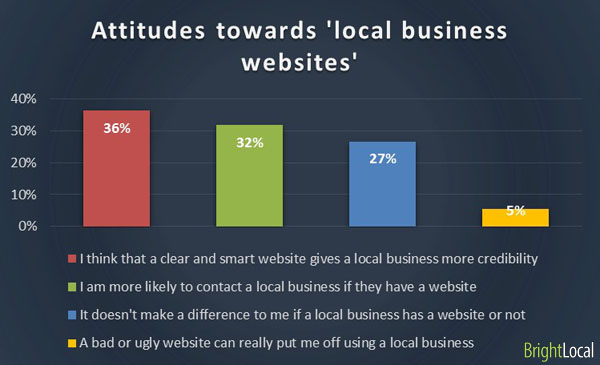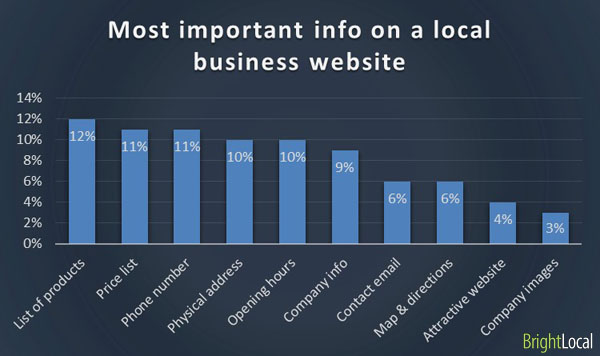BrightLocal, an SEO agency based in the U.K. that provides local optimization services and tools to small businesses around the world, asked a simple but critical question in a recent study: What do local consumers want most from local business websites?
The question, which led to more questions, resulted in a series of key findings that all optical business owners should consider when revitalizing their web presence or bringing their websites up to par with what other businesses are doing and what potential patients and shoppers are expecting from you.
BrightLocal asked their local consumer panel four questions and received 811 responses with all respondents based in the U.S. and Canada. A wide range of age groups and a balanced percentage of men (46 percent) and women (54 percent) were represented.

A key finding of the study was that 36 percent of all respondents said a clear and smart website gives a local business more credibility. This was especially true for consumers aged 55 and older, for whom 45 percent agreed with this. Further, 32 percent of respondents overall said they are more likely to contact a local business if it has a website, with twice as many consumers aged 18 to 34 (41 percent) agreeing with this statement compared to older adults (21 percent).

When asked what information is most important on a local business website, respondents selected the "four Ps"—product, price, place and phone number—as most important to website success.
Respondents also identified which factors make them most likely to use a local business. In this category, business proximity, clear contact details and company information were deemed the most important, with factors such as accreditations and 24 hour service deemed the least important.
The takeaways from BrightLocal's study are as follows:
- Strategy is important, but simplicity is key. Your website doesn't have to be the latest and greatest state-of-the-art design masterpiece—a savvy site is great and will give your businesses more credibility, but get the basics down first before you end up with a site that's overly crowded and not user-friendly.
- Focus on the essentials: Who, What, Where, When, How. This may sound obvious, but make sure your homepage clearly states who you are, what you offer, where and when you can be reached and how much your services or products cost. Customers are busy, too—don't make them go hunting for information. They likely will go find what they need elsewhere.
- Contact info = Phone calls. Believe it or not, customers still want to be able to call you when they need you. Make sure your contact information is prominent on the page.
- Doing what's good for SEO (Search Engine Optimization) is important but is not necessarily what consumers are looking for. Blog posts and testimonials, for example, are great for bumping up search, but they're low on the list of customers' priorities. It's all about finding a balance between what will get people looking and what will get them on the phone or in the door.
- Embrace the internet. In a
blog post detailing the study, Ross Marchant, marketing manager at BrightLocal, points out that business owners who are not utilizing the internet are missing out on constant opportunity to grow their business. "By tapping into the local, online audience which exists around them," he said, businesses will "be found by more potential customers on the web" and those businesses will be contacted by consumers. Keep your eyes open and eventually potential patients will meet your gaze.
PDFs of the charts from this survey are
available here.